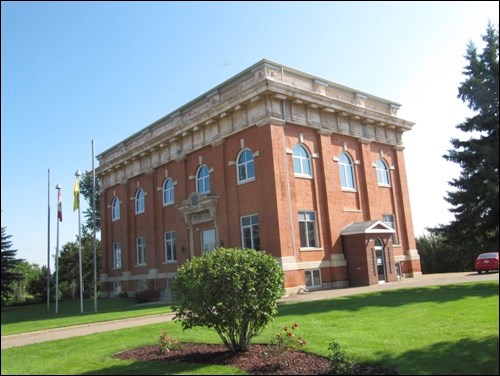The Town of Battleford's official community plan bylaw received first reading at Monday evening's council meeting and the public will have an opportunity at the opening of council's June 20 meeting to voice their opinions before second and third readings.
Mayor Derek Mahon said professional community planners Crosby Hanna and Associates have been working on developing the OCP with the Town for about eight months.
The OCP manages growth and development in a municipality for about a 15-year period. It includes maps showing future growth areas of Battleford, the residential areas as well as the highway commercial and downtown commercial areas. Also set out are flood-hazard areas as designated by the provincial government, as well as areas designated as historically sensitive.
The plan also has policies on residential and commercial development.
Along with the OCP bylaw, council also gave first reading to its new zoning bylaw, which is the document that addresses the details of how the OCP is implemented.
Mayor Mahon said it’s the document that contains all the information needed when applying for a building permit.
"It's purpose," said Town CAO John Enns-Wind, "is, one, to make sure we have a safe community, and, two, we want to preserve good relations between our neighbours."
A zoning bylaw divides a municipality into zoning districts and regulates the development and use of land in those districts. A zoning bylaw also permits a council to set standards for the use and subdivision of land, and helps manage the supply of municipal services and resources to new development.
The last time the zoning bylaw was revisited was in 2005, said Mahon.
Following the same process as the OCP bylaw, the public may voice concerns on the zoning bylaw at the same June 20 meeting.
The public can view the documents at Town Hall and it is also planned to put them up on the Town's website. There was already an open house on the OCP March 11 at the Alex Dillabough Centre.
Regarding the official community plan, Enns-Wind said some of the things that have been added include no longer allowing businesses to put sandwich board signs down the middle of the street (due to a sign controversy), limits for solar panels and a prohibition on windmills in residential areas (due to provincial policy encouraging renewable energy) and discretionary short-term rentals (as part of Canada's growing "sharing economy.") He added, given the heritage component of the downtown, with the post office, Town Hall and library, height restrictions would be introduced there, but not in other areas. Another addition is allowing small animal vet clinics. He also said a number of source springs in West Park were cited as hazards.




